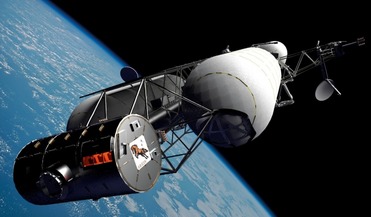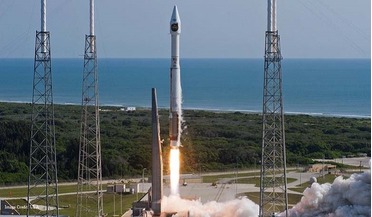 January 2020
Collaborating to harness space innovation in healthcare
January 2020
Collaborating to harness space innovation in healthcare
... camera’, developed by researchers at the Fraunhofer Institute, that can be swallowed by patients; dementia-tracking slippers which use GPS, and technology developed for space travel used for breast screening vans. ESA’s development of space suits...
 August 2020
Scorpion – a study of the possible
August 2020
Scorpion – a study of the possible
... developed for the first Salyut space stations. Reaction Engines’ Skylon spaceplane. So while we marvel at applications like GPS, gawp as rockets power into the cosmos and admire the astronauts and the work they do, perhaps...
 September 2020
Tackling space debris - a global priority
September 2020
Tackling space debris - a global priority
... objects pose a serious threat to the operation and safety of critical space assets, such as Global Positioning System (GPS) satellites and the International Space Station (ISS) and its crew. Further, they could hinder future...
 September 2023
Getting a grip on space sustainability and space debris
September 2023
Getting a grip on space sustainability and space debris
... range of satellites, is quite a small shell of geo-spatial area and the same is true of medium orbits, where GPS satellites operate, and higher geosynchronous orbits. Our dependence on the data we get back from satellites and...
 15 July 2015
ULA Atlas V blasts off from Cape Canaveral with GPS IIF-10 – and shows how SpaceX needs a longer track record
15 July 2015
ULA Atlas V blasts off from Cape Canaveral with GPS IIF-10 – and shows how SpaceX needs a longer track record
... has gone off without a hitch. This is the 55th successful launch for ULA’s Atlas V rocket. The GPS IIF-10 satellite it carries is a new addition to the U.S. military’s Global Positioning System. Perhaps most importantly, today’s Atlas...
 October 2019
Space-based cybersecurity challenges for NATO
October 2019
Space-based cybersecurity challenges for NATO
... for certain users within EU member states. When and if GPS fails to operate, Galileo is designed to provide civilian and ...signals and there is no agreement yet for Galileo to replace GPS in case of the latter’s failure. Intelligence, surveillance and...